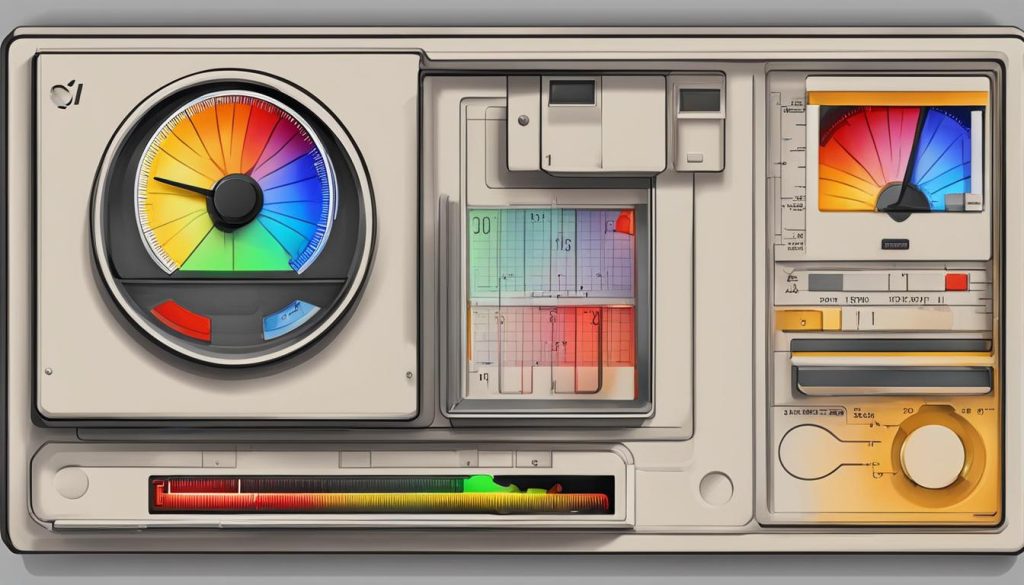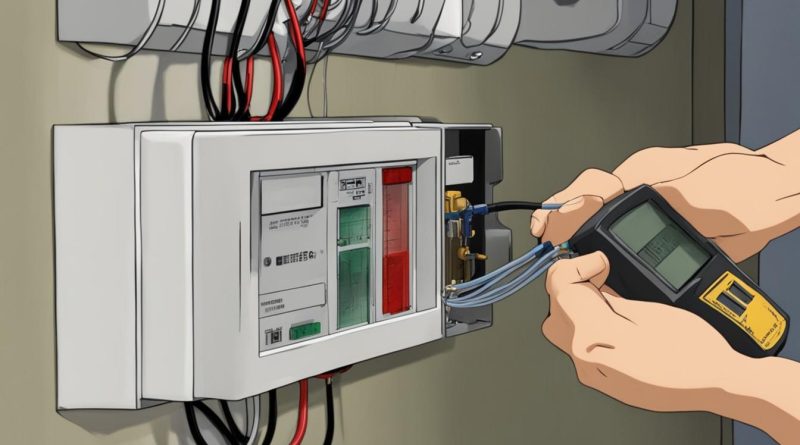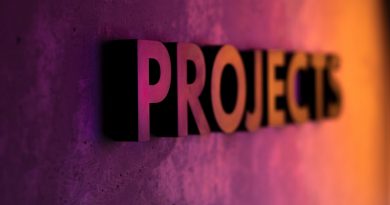Electricity Meter Guide: Install & Readings FAQs
If you want to manage your home or business energy consumption effectively, one of the essential tools you need is an electricity meter. These meters measure the amount of electricity you consume, giving you insights into your energy usage and helping you make informed decisions. Whether you’re looking to install a new meter, replace your old one or learn more about meter readings and accuracy, this comprehensive guide has got you covered. You’ll also learn about different types of meters, such as smart and digital meters, and how to choose the best one for your needs.
Key Takeaways:
- Electricity meters are crucial tools for managing energy consumption.
- There are various types of meters available, including smart and digital meters.
- Professional expertise is required when installing or replacing a meter.
- Accurate meter readings are vital for effective energy management.
- Regular troubleshooting and maintenance can help avoid meter issues.
Types of Electricity Meters
Electricity meters come in various types and designs, including digital, traditional, and smart meters. It’s crucial to understand the differences between these meters to make informed decisions when selecting the right meter for your needs. Below are some essential details about each type of electricity meter:
Traditional Meters
A traditional or mechanical electricity meter is the oldest type of meter available. It’s the most familiar type of electricity meter used in most homes and businesses. It works by measuring the amount of electricity transmitted through a spinning disc. The rotation of the disc helps to calculate the power consumption of the appliances connected to your power supply. Although traditional meters don’t have digital readouts, they are typically reliable and can last for decades.
Digital Meters
A digital meter is an electronic device that provides a digital readout of your energy usage. It works by measuring the flow of electricity and then displaying the information on an easy-to-read LCD. Digital meters are more accurate than traditional meters and provide users with detailed consumption data. Unlike traditional meters, digital meters can record energy usage during peak and off-peak hours, making them useful for tracking consumption patterns.
Smart Meters
A smart meter is the most advanced and modern type of electricity meter on the market. It’s a digital meter that connects to a network and uses wireless technology to transmit real-time energy data to your energy supplier. It provides users with accurate consumption data, allowing them to monitor their energy usage in real-time. In addition, smart meters eliminate the need for manual meter readings, as they automatically send consumption data to your supplier.
Overall, choosing the right type of meter comes down to personal preference and individual requirements. However, understanding the differences between traditional, digital, and smart meters puts you in a better position to make informed decisions.

Installation and Replacement of Electricity Meters
Installing or replacing an electricity meter can seem like an easy task, but it requires professional expertise. The process involves disconnecting the power supply, removing the old meter, and connecting the new one. It’s essential to hire a qualified electrician or contact your meter supplier for assistance to ensure a safe and proper installation or replacement process.
Before beginning the installation or replacement process, it’s crucial to ensure that you have the necessary equipment and tools to complete the job. Here are some essential guidelines to consider:
- Obtain the necessary permits and approvals from your local authorities or power supply company before starting the installation or replacement.
- Ensure that the area surrounding the meter is clear of any obstacles or debris before beginning the installation or replacement.
- Ensure that the meter installation or replacement complies with all relevant regulations and standards.
- Ensure that all connections are properly secured and tightened to prevent any accidents or malfunctions.
Once the installation or replacement is complete, you should check the meter’s accuracy by performing a test using an electric load. This step will ensure that the meter is functioning correctly and displaying accurate readings.
If you encounter any issues during the meter installation or replacement process, don’t hesitate to contact your meter supplier for assistance.
Meter Installation and Replacement Checklist
| Steps | Considerations |
|---|---|
| Obtain necessary permits and approvals | Ensure that you have obtained all the required permits and approvals from the relevant authorities or power supply company. |
| Disconnect Power Source | Turn off the electricity supply at the mains before proceeding with the installation. |
| Ensure Surrounding Area is Clear of Obstacles | Clear the area around the meter to prevent any accidents or hindrances during the installation or replacement. |
| Replace the Meter | Remove the old meter and replace it with a new one. Ensure that all connections are appropriately secured and tightened. |
| Perform Meter Accuracy Test | Check the meter’s accuracy by conducting a test using an electric load. This step is essential to ensure that the meter is working correctly and displaying accurate readings. |

Meter Readings and Accuracy
Accurate meter readings are crucial to managing energy consumption effectively. Whether you have a traditional or smart electricity meter, understanding how to read it correctly is essential. A smart meter allows for real-time monitoring, enabling you to keep track of your energy usage more accurately and adjust it as per your need. On the other hand, a traditional meter requires manual readings, often taken by a meter reader from your energy supplier.
To read your traditional meter, you need to record the numbers on the dials or display, from left to right, ignoring any red dials and zeroes at the beginning or end. The numbers recorded are in kilowatt-hours (kWh), which represents the energy consumption of your property.
If you have a smart meter, you can find your energy consumption data easily on its display. Depending on your meter’s functionality, you may be able to view energy usage by the hour, day, or week, allowing for better monitoring and energy management.
Ensuring meter accuracy is essential to avoid inaccuracies in your energy bills and unnecessary costs. A meter is considered inaccurate if it records energy consumption higher or lower than actual usage. Potential issues with meter accuracy include mechanical errors, tampering, or damage to the meter.
It’s recommended to monitor your meter readings regularly to detect any abnormalities or discrepancies. If you suspect an issue with meter accuracy, contact your energy supplier immediately to initiate a resolution process.
“Accurate meter readings are fundamental to managing energy consumption – be that for cost savings, carbon reduction, or sustainability.”
Frequently Asked Questions about Electricity Meters
This section will address some of the frequently asked questions about electricity meters and their management. By the end of this section, readers will have a comprehensive understanding of the topic, including meter suppliers and useful troubleshooting tips.
How do I choose an electricity meter supplier?
When selecting a supplier, it’s essential to choose a reputable and reliable company that adheres to quality measures. Research and compare various meter suppliers to determine which one offers the best deals in terms of price, installation, and maintenance services. Check reviews and testimonials before making a final decision.
Why do I need to read my electricity meter?
It’s crucial to regularly read your electricity meter to monitor your energy consumption accurately. Balancing the amount you use and the amount you are charged for can help identify and rectify any discrepancies that may arise.
How often should I read my electricity meter?
The frequency of meter readings depends on the type of meter you have and your energy consumption preferences. Smart meters automatically send readings to the supplier, whereas older models may require manual readings. It’s recommended to take readings at least once a month.
What do I do if my electricity meter reading is inaccurate?
If you suspect that your meter readings are incorrect, you should contact your supplier and report the issue. Suppliers can take remedial measures or arrange for an engineer to check the meter’s accuracy. Monitoring and correcting your energy usage based on accurate meter readings can help reduce energy bills and improve sustainability.
By addressing these common questions, we hope to provide you with a better understanding of electricity meters and how to manage them effectively. Remember, it’s essential to select a reputable meter supplier, regularly read your meter, and report any inaccuracies to ensure efficient energy management.
Conclusion
In summary, this guide has provided a comprehensive overview of electricity meters, including information on the different types of meters available, the installation and replacement process, meter readings and accuracy, and frequently asked questions. Armed with this knowledge, individuals can make informed decisions regarding their energy consumption and effectively manage their energy use.
It is important to note that installing or replacing an electricity meter requires professional expertise, and individuals should seek the assistance of a qualified electrician or their meter supplier to ensure a safe and proper installation. Additionally, accurate meter readings are essential for effective energy management, and individuals should monitor their meter readings regularly to identify any potential issues.
If individuals have further questions or require additional assistance related to their electricity meter, they should contact their meter supplier for support. By following the guidelines and information provided in this guide, individuals can successfully navigate the world of electricity meters and effectively manage their energy consumption.
FAQ
What is an electricity meter?
An electricity meter, also known as a smart meter or digital meter, is a device used to measure the amount of electricity consumed in a home or business. It provides accurate data on energy usage, allowing consumers to monitor their electricity consumption.
How do I install an electricity meter?
Installing an electricity meter requires professional expertise. It involves disconnecting the power supply, removing the old meter, and connecting the new one. It’s essential to hire a qualified electrician or contact your meter supplier for assistance to ensure a safe and proper installation process.
Can I replace my old meter with a smart meter?
Yes, you can replace your old meter with a smart meter. Smart meters offer real-time monitoring and accurate consumption data, enabling you to manage your energy usage more efficiently. Contact your energy provider or meter supplier to discuss the installation process and any associated costs.
How do I read my electricity meter?
Reading your electricity meter depends on the type of meter you have. Traditional meters have rotating dials, while smart meters display readings digitally. To read a traditional meter, note the positions of the numbers on each dial. For smart meters, simply check the display screen for the consumption reading. Refer to the user manual provided by your meter supplier for specific instructions.
Why is meter accuracy important?
Meter accuracy is crucial for accurate billing and effective energy management. If your meter is inaccurate, you may be charged more or less than your actual energy consumption, leading to financial discrepancies. Regular meter accuracy checks and prompt reporting of any issues to your meter supplier are advisable.
How can I identify potential issues with my meter readings?
Common signs of potential meter issues include unusually high or low energy bills, inconsistent meter readings, or appliances not operating correctly despite low consumption readings. If you suspect any problems, contact your electricity supplier or meter supplier to request a meter accuracy check and resolution.
Who should I contact if I have questions about my electricity meter?
If you have questions about your electricity meter, reach out to your meter supplier or contact your energy provider for guidance. They can assist you with meter-related queries and provide information on troubleshooting, installation processes, and other meter-related services.
Can I switch my electricity meter supplier?
Yes, in some cases, you can switch your electricity meter supplier. Research different suppliers to compare prices, services, and types of meters offered. Note that in some instances, depending on your region and contract terms, you may be limited to using a specific meter supplier chosen by your energy provider.




